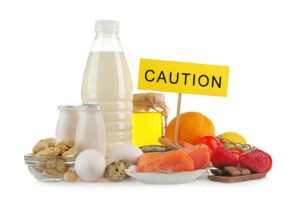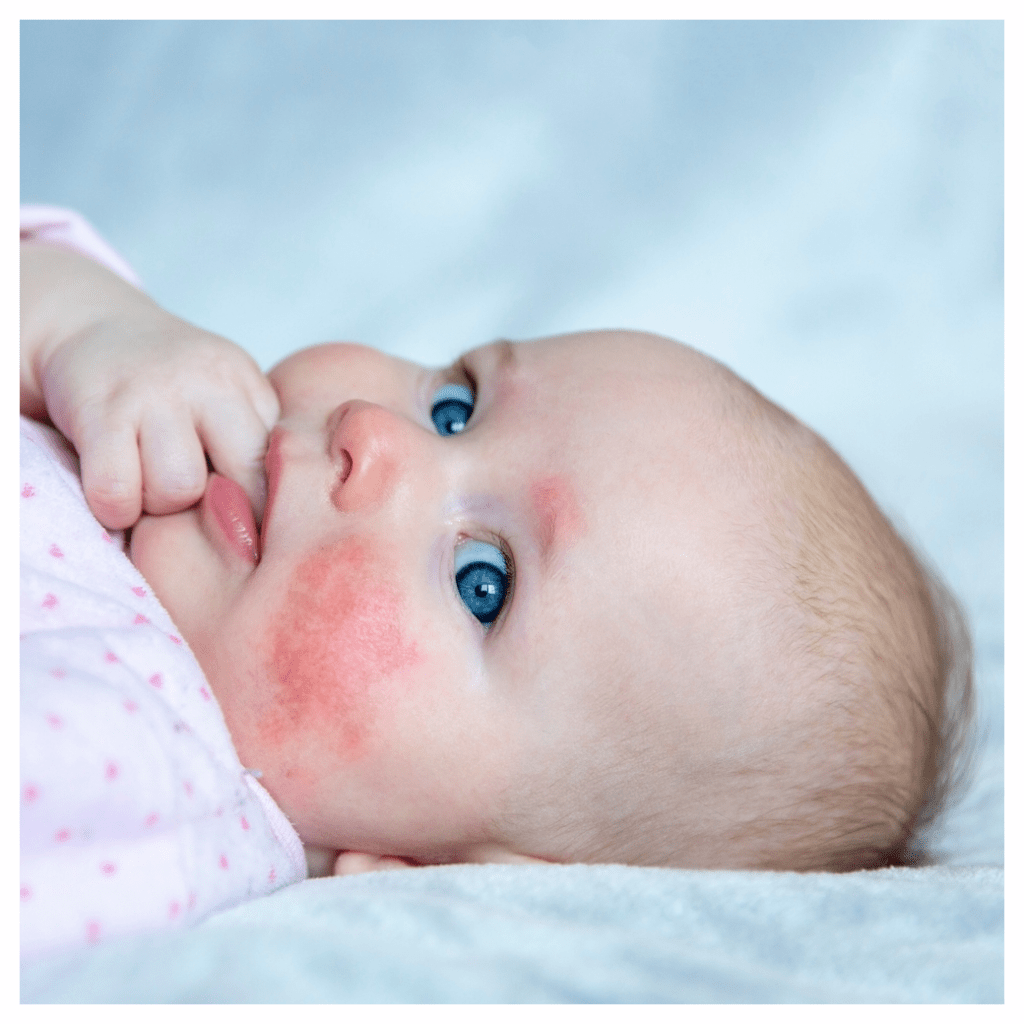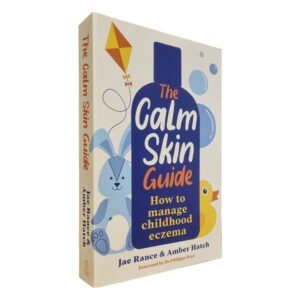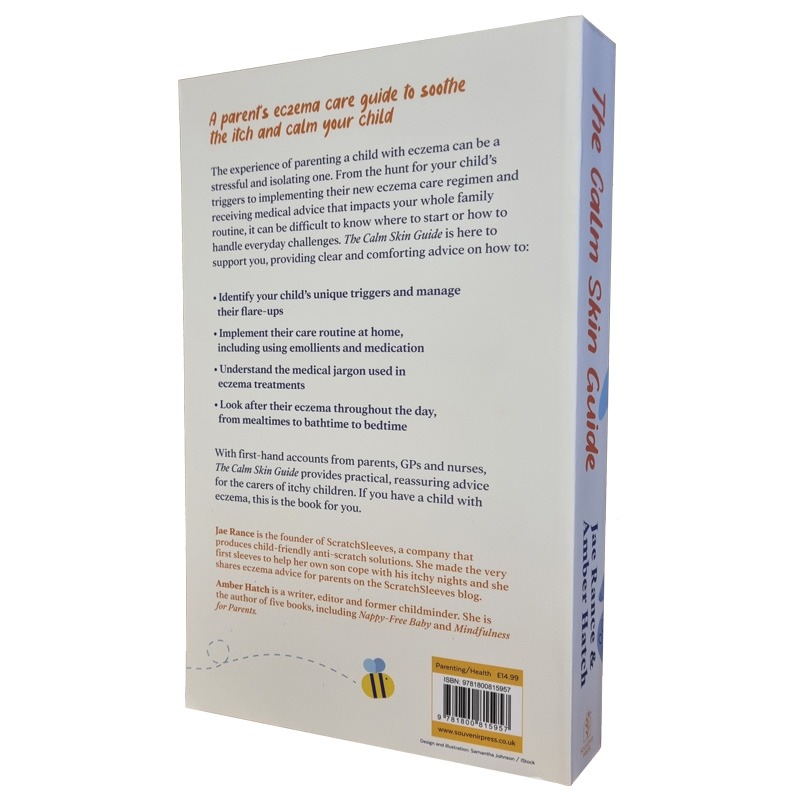Understanding food allergies: A guide for eczema parents



If you have a child with eczema you will likely know all about the atopic triad – this describes the three conditions which often go hand in hand, hence ‘triad’. The three conditions are eczema, allergies and asthma. In this post we are going to focus on allergies, specifically to certain foods. Allergies can also include hayfever or allergic rhinitis in reaction to pollen, house dust mites to name a few. That said, it is important to note that not all children with eczema will develop allergies or asthma.
According to a paper written in 2013 by R. Pankwar et al, about 50% of children with early onset eczema (in the first weeks or months after birth) will have developed allergen sensitisation by the time they are two1. This doesn’t necessarily mean that they have full-blown allergies at this age. However, the allergen may trigger their eczema and there is a risk that a full allergy may develop in the future. Around 40% of babies and children with moderate to severe eczema have food allergies – the main ones (around 90%) being hen’s eggs, cow’s milk, soy and wheat.
How does allergy develop?
In most cases that a person cannot have an allergic reaction to a substance that they have never come across. The process through which a person’s body becomes sensitive to a given allergen is known as sensitisation.
Sensitisation
When an allergen enters the body, the immune system recognises if was an invading microbe. This sets off a cascade of reactions culminating in the production of allergen-specific IgE antibodies. These are released into the blood stream to fight off the ‘invading microbes’. The levels IgE cells relating to specific allergens can be measured in blood tests. Some, but not all, individuals who are sensitised will go on develop an allergic reaction on re-exposure to that allergen.
Re-exposure to allergen
It is possible for some people to go their whole life carrying allergen-specific IgE cells without ever experiencing an allergic reaction or even being aware of the allergy. This is why a positive allergy test usually needs to be confirmed with a separate challenge test.
However, for other re-exposure to that the allergen can set off an aggressive immune response. The body rapidly releases inflammatory compounds resulting in local inflammation. This can take the form of eczema flare-ups, a runny nose and sneezing or inflammation of the airways. In most cases these reactions can be controlled with antihistamines, like Piriton. Extreme allergic reactions, known as anaphylactic reactions can be life threatening and may need treating with an adrenaline injection.
In addition to these immediate reactions, symptoms can also occur hours after exposure to the allergen and can last upwards of weeks. These delayed reactions result in similar symptoms.
Allergies to foods are more common in babies and children whereas severe reactions in older people are more commonly triggered by insect venom.
Dual exposure hypothesis – linking eczema and food allergies
The mechanisms behind why some children develop food allergies and others don’t are not well understood. The dual exposure hypothesis of food allergy proposes that exposure through the skin promotes sensitization, which can lead to allergy. If possible allergens are first experienced through the gut, the body learns how do deal with the allergen correctly. This hypothesis explains why children with early-onset eczema (and weakened skin barrier) are at such a high risk of developing food allergies. While this hypothesis has yet to be be definitively proven, it is supported by various small studies 2,3and the early introduction of allergenic foods has been shown to substantially reduce the risk of food allergies3,4.
This is why doctors are keen to treat baby eczema ‘hard and fast’ with steroid creams. By keeping the skin as intact as possible, the risk of potential allergens finding their way into the body via damaged skin is greatly reduced. This is also why GPs typically prescribe mineral oil based emollients. You can find out more about minimising the risks of food allergies in eczema children here.
Different types of food allergy
Food allergies can occur instantly or slowly over time. The time frame is what determines the ‘type’ of allergy. The three recognised groups are:
- IgE-mediated food allergy. This is the most common. The immune system produces an antibody called immunoglobulin E (hence IgE) within minutes or even seconds of eating the food they are allergic to. This type of allergy has the highest risk of anaphylaxis. These are the immediate allergic reactions described above.
- Non-IgE-mediated food allergy. This is triggered by other cells in the immune system, and not by IgE. Symptoms can take several hours to develop and therefore the cause of the allergic reaction is not so easy to trace. These are the delayed allergic reactions described above.
- Mixed IgE and non-Ige food allergies. This describes a combination of both the types mentioned above.
What are the symptoms of food allergy in children?
Common symptoms to watch out for if a food allergy is suspected include:
- Gastrointestinal disruption – tummy ache, feeling sick, being sick, diarrhoea.
- A hoarse throat usual with mild wheezing and coughing.
- Itching in the mouth or throat.
- Rashes or hives which are intensely itchy.
- Facial swelling.
- Temperature changes – either becoming very hot or very cold.
- In extreme cases, for example with peanut allergies, there is a risk of anaphylactic shock – see here for our blog post dedicated to anaphylaxis.
If you suspect your child has a food allergy, the first step is so start tracking their symptoms. Log everything your child eats or drinks together with any symptoms. It’s also useful to note down any other possible eczema triggers like teething or activities like swimming. Don’t forget to record the time. There are also a wide range of apps available which are listed in this article by Allergy Kitchen. Take this log with you when you visit your doctor.
Allergy or intolerance?
A true food allergy affects just the immune system. Even small amounts of the offending food result in the creation of IgE antibodies to fight off the enemy. Symptoms can be severe or life-threatening. In contrast, a food intolerance often affects only the digestive system or puts additional stress on the liver as it tries to get rid of the unwanted chemicals. In some cases the build up of unwanted chemicals in the body that can trigger eczema.
If you have a food intolerance, you may be able to eat small amounts of the offending food without trouble. You may also find that after a break from eating the triggering food, an intolerance may become less problematic.
Causes of food intolerance include:
- Absence of an enzyme needed to fully digest a food e.g. lactose intolerance
- Sensitivity to chemicals within food. For example, salicylates found in many common foods have been shown to aggravate eczema in around 50% of adult eczema sufferers. You can read more about chemical intolerances here.
A quick warning
Thanks to the internet and social media we now have instant access to a staggering amount of information at our fingertips. Whilst this can be enormously helpful, there is also a common cognitive bias which leads people to accept information which reinforces their personal beliefs whilst discounting information that contradicts it. This is known as confirmation bias and it is important to be aware of this as not all sources you may happen across are credible. If you suspect your child is suffering with food allergies you may tick a lot of items on the list above and believe you have a rock solid diagnosis. Be aware that these are also common symptoms of many other conditions, including eczema.
The only way to confirm food allergies is with careful testing, usually by a healthcare professional. This means not just testing for allergic markers, but confirming the diagnosis with a challenge test. Don’t restrict your child’s diet without medical guidance. Not only is there the risk that they will miss out on important nutrition, but avoiding food un-necessarily can increase the risk of dangerous allergic reactions in the future.
Other references
- World Allergy Associated – White Book on Allergy. R Pawankar et al 2013. https://www.worldallergy.org/UserFiles/file/WhiteBook2-2013-v8.pdf
- Strid J, Hourihane J, Kimber I, Callard R, Strobel S. Disruption of the stratum corneum allows potent epicutaneous immunization with protein antigens resulting in dominant systemic Th2 response. European journal of immunology. 2004. https://pubmed.ncbi.nlm.nih.gov/15259007/
- Lack G, Fox D, Northstone K, Golding J. Factors associated with the development of peanut allergy in childhood. New England Journal of Medicine 2003 https://pubmed.ncbi.nlm.nih.gov/12637607/
- Du Toit G et al. Randomized trial of peanut consumption in infants at risk for peanut allergy. New England Journal of Medicine. 2015. https://pubmed.ncbi.nlm.nih.gov/25705822/
- Perkin, M et al. Efficacy of the Enquiring About Tolerance (EAT) study among infants at high risk of developing food allergy. Journal of Allergy and Clinical Immunology. 2019. https://pubmed.ncbi.nlm.nih.gov/31812184/
- Bonus reference: Podcast: New research upends our understanding of the link between eczema and food allergies — Global Parents for Eczema Research – click here.
As well as sharing our experience of bringing up an eczema child (and favourite allergy-friendly recipes), ScratchSleeves also manufacture and sell our unique stay-on scratch mitts and PJs for itchy babies, toddlers and children. We now stock sizes from 0-adult in a range of colours. Visit our webshop for more information.
The Calm Skin Guide
Love our blog? It's also available in book format with:
- First hand accounts from parents & medical professionals
- Easy navigation
- Comprehensive index
- Additional material
Signed copies available at no extra cost
Written by:
Reviewed by:
Interesting article? Don't keep it to yourself...
Read next...
You may also find helpful...
Quick buy


Multi Buy Discount

Spend between £30 - £60 and save 5%
Spend between £60 - £120 and save 10%
Spend over £120 and save 15%
Discount automatically applied at checkout
No Quibbles Guarantee

ScratchSleeves abide by a no quibbles guarantee.
Free UK Postage

Free packing and postage on all UK orders. For overseas orders to Europe postage is from £3.50, to USA is £6.50 and to the rest of the world, from £3.75.








